Google has released an “experimental” chatbot, which only works in English for now. It's Google's answer to Microsoft's Bing (which in turn is based on OpenAI)… but of the three biggest tech companies, there's one conspicuous by its absence: Apple.  Gonny van der Zwaag | iCulture.nl – 22 March 2023, 11:55 whatsappfacebooktwittertelegramlinkedinmailprint
Gonny van der Zwaag | iCulture.nl – 22 March 2023, 11:55 whatsappfacebooktwittertelegramlinkedinmailprint
Google Bard started
Google Bard was already announced in February and now gives the first users access to the chatbot Bard. You do need to live in the US or UK (or use a VPN) and chat in English for this to work. Anyone interested can join the queue. Some users also say that they received an invitation email just a few hours later. It only works for personal accounts and not for Google Workpace users.
Google uses a lightweight, optimized version of Google's Language Model for Dialogue Applications (LaMDA) and therefore provides different answers than Microsoft Bing, which is based on technology from OpenAI (of ChatGPT fame). The big question is which AI technology Apple will use if the company also wants to release its own chatbot. There are indications that ChatGPT-like features for Siri are on the way, but more details are not yet known.

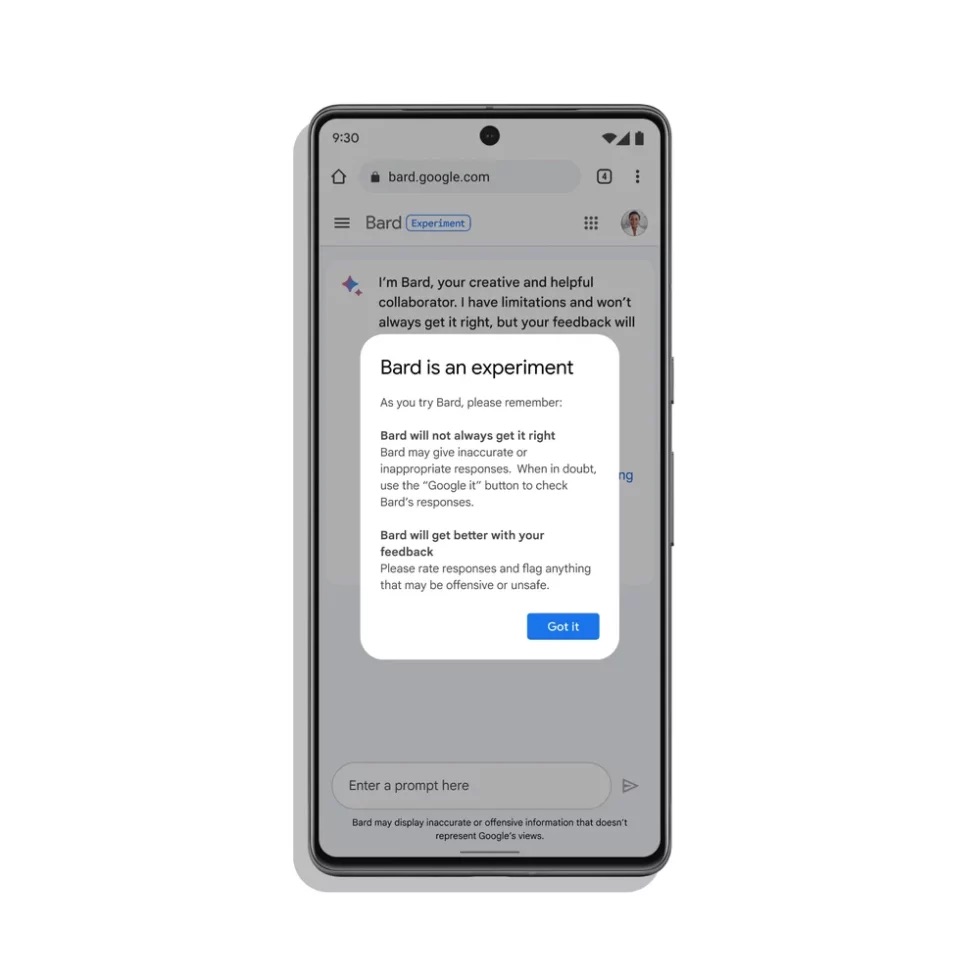
Here are some examples of tasks you can perform with Google Bard:
- A write a novel
- Make a packing list for a weekend trip
- Make a blog post about any topic imaginable
- Explain a natural phenomenon
- Suggestions what vegan meal you could cook tonight

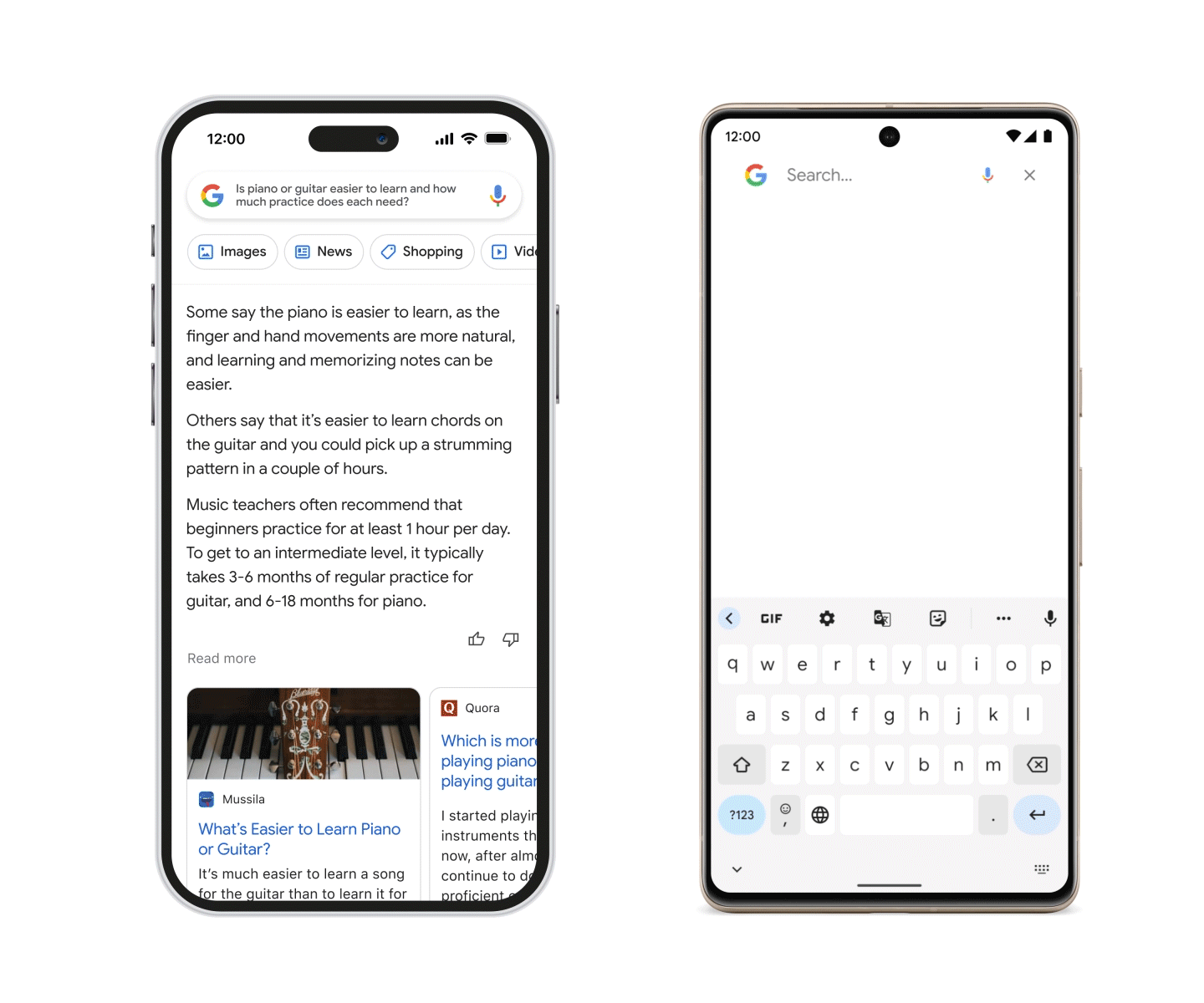
You could also ask Google Search for some tasks and Google says that both are complementary. You will also receive a warning that you may encounter prejudices and stereotypes with the chatbot and that some information could be misleading or wrong. Gradually, the results will improve based on feedback. Google also wants to expand it gradually, for example with more languages and the possibility to write programming code.

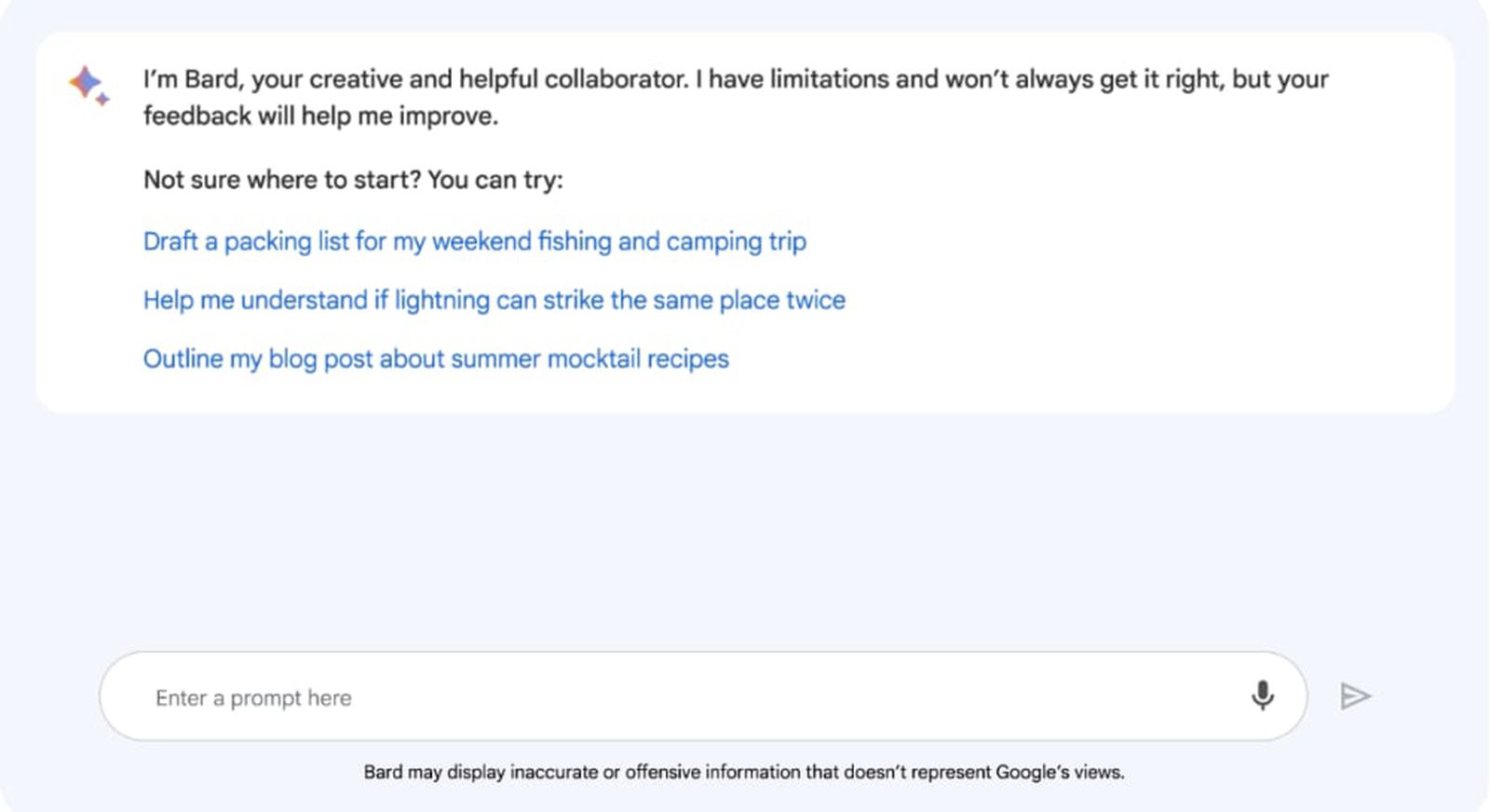
No Gmail data used
Microsoft researcher Kate Crawford was quick to criticize: Google's language model is said to have been trained with Gmail, but Google denies this. It would be an early experiment, in which errors will often occur initially. This also applies to the chatbot's answer to the question “Where does Bard get his’data from?” If Google did secretly use Gmail, they are violating privacy rules.
Umm, anyone a little concerned that Bard is saying its training dataset includes… Gmail?
I'm assuming that's flat out wrong, otherwise Google is crossing some serious legal boundaries. pic.twitter.com/0muhrFeZEA
— Kate Crawford (@katecrawford) March 21, 2023
This also immediately makes the problem with chatbots clear: if the privacy-conscious Apple has much less user data to browse, it does not bode well for the quality of a future Siri chatbot. The current Siri assistant is regularly criticized for being less smart than assistants from other tech companies. Another problem with such chatbots is that they can provide incorrect information. Google therefore recommends that you fall back on searching with Google Search if you want to be sure that the answer is correct. Such an assistant is useful for coming up with a speech or giving suggestions for vegan meals, but not for looking for factual answers.
Apple vs Microsoft
The increasing popularity of OpenAI's ChatGPT has prompted both Microsoft and Google to add conversational AI features to their search engines. Apple doesn't have its own search engine (yet), but it has hired so many AI researchers in recent years that it would be strange if they don't come up with anything now. In the meantime, Microsoft has made a lot more progress: they are already ready for a second round and have already improved the AI technology for Bing, they announced during an event. The company mainly uses it in the Bing search engine and the Edge browser. “AI is going to fundamentally change every software category”, said CEO Satya Nadella, “starting with the biggest category of all: search”.
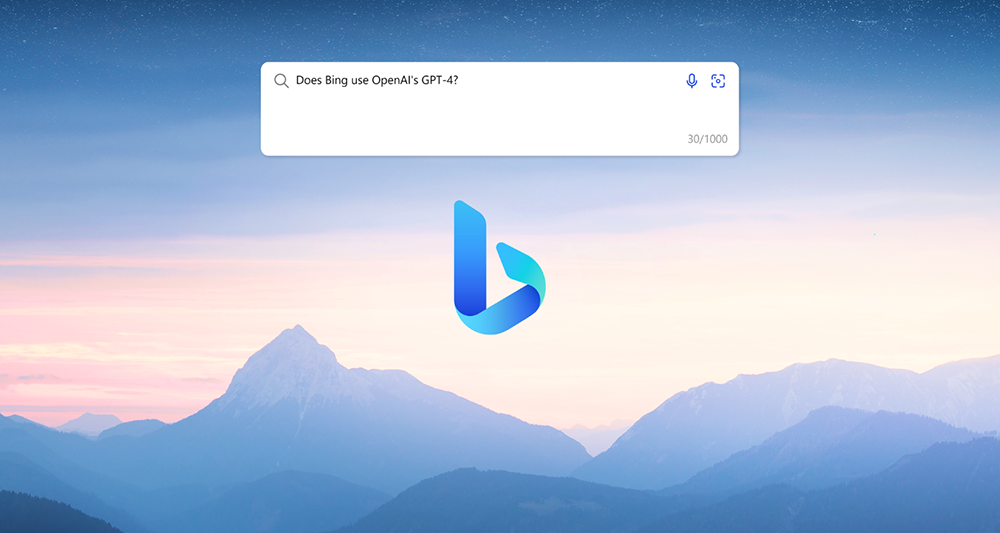
We have hardly heard anything from Tim Cook about chatbots or AI assistants. He seems particularly fascinated by augmented reality and seems to have hung his reputation on the (yet unannounced) mixed reality glasses, something that is still too advanced and too expensive for the mainstream audience. Although a chatbot does not appeal to everyone, practical applications are imaginable – and it's free.
See also 

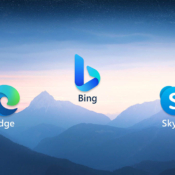
Microsoft's iPhone apps now work with ChatGPT
You may not have dreamed of making Bing the default search engine on your iPhone, but there's a good reason: it includes ChatGPT. Microsoft has also added the smart AI technique to two other iOS apps, namely Edge and Skype.
Apple could still surprise us with a sudden announcement that shows Apple's AI has made great strides, but for now it looks like Microsoft has a head start. You can now ask Bing to do complex searches, like planning a trip or figuring out which TV to buy. You can then further refine the search with more details. Bing can also perform creative tasks, such as writing an email or taking a knowledge quiz. In the Microsoft Edge browser you can ask for a summary, compare products and have texts written based on a few keywords. The AI assistant takes into account the desired length and tone (formal informal). According to Microsoft, the new OpenAI model they use is more powerful than ChatGPT and optimized for search (instead of chat). It's faster and more accurate. Those who are motivated enough can already participate in the limited preview. In the coming weeks “millions of people” access the preview, also mobile.
Luckily, you can use an Apple product to access these Bing and Google chatbots: simply via the Safari browser.